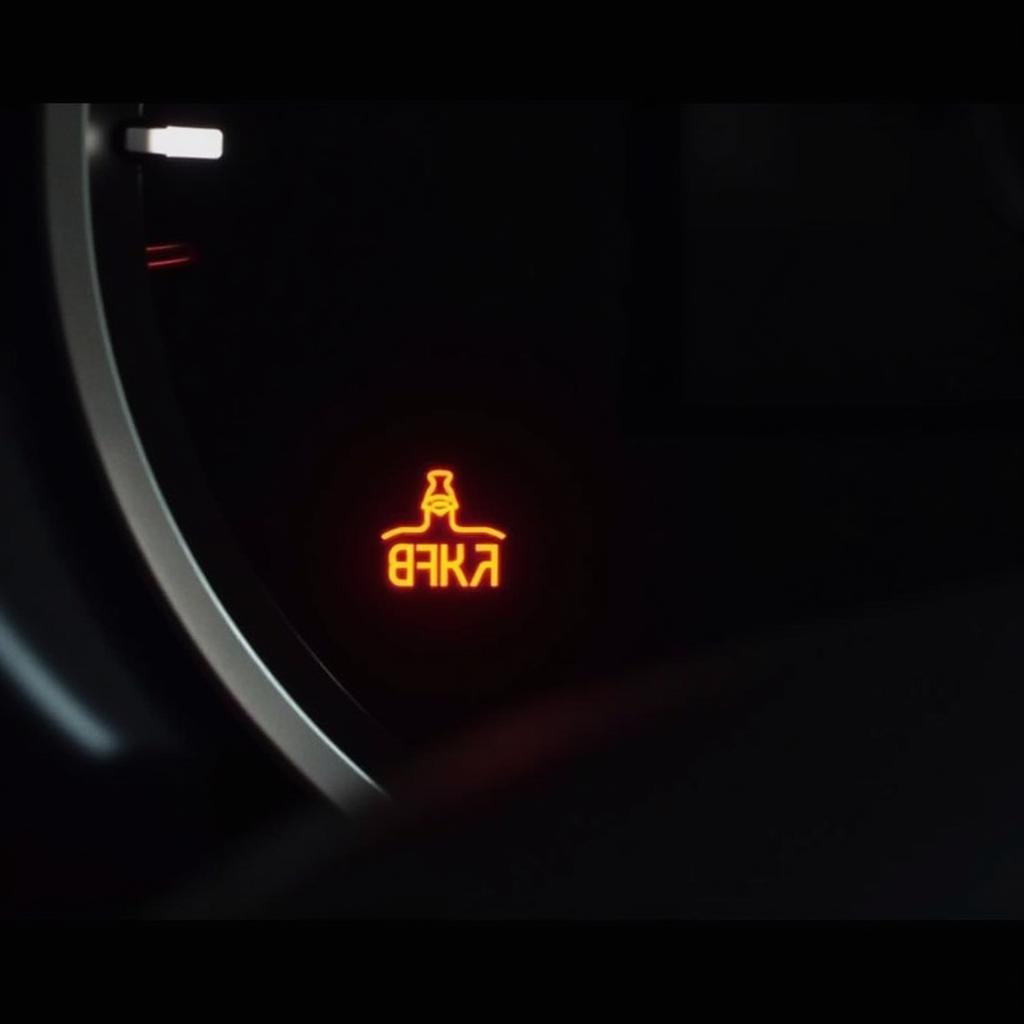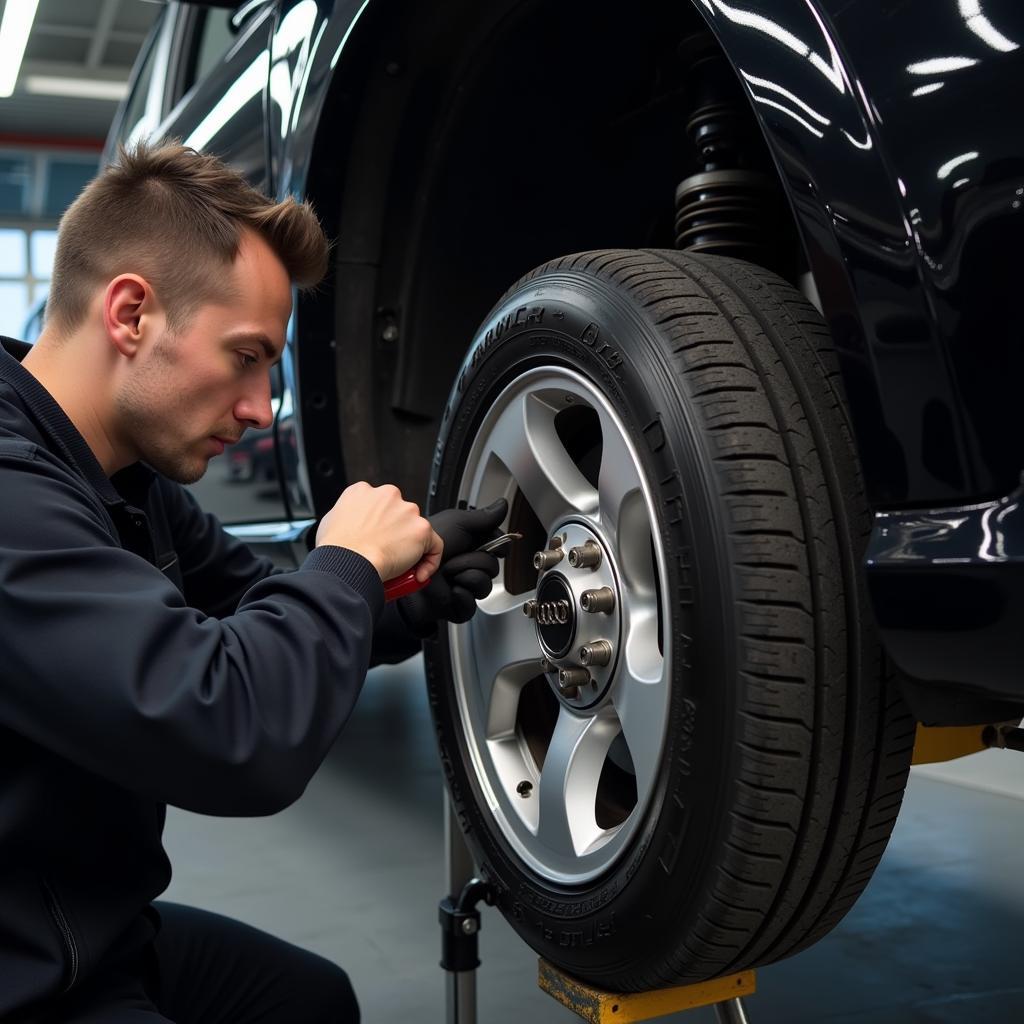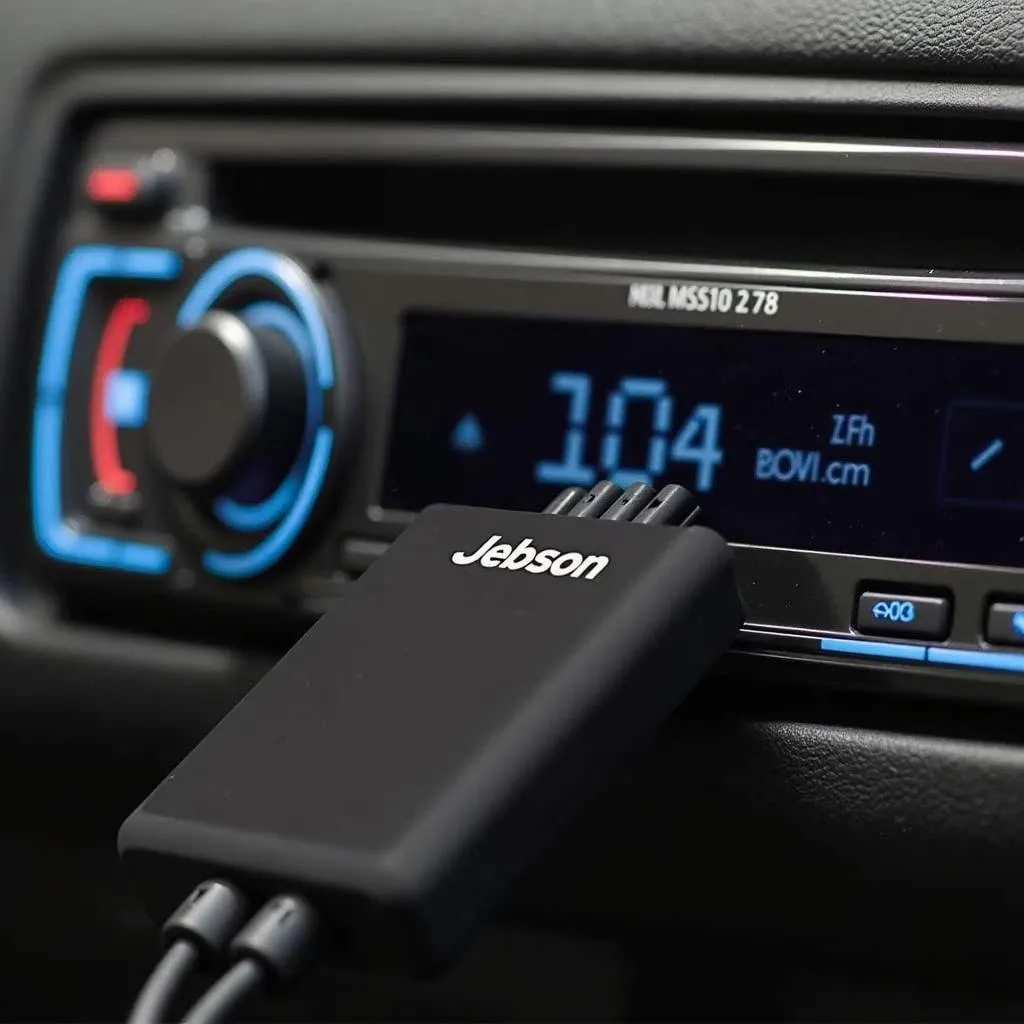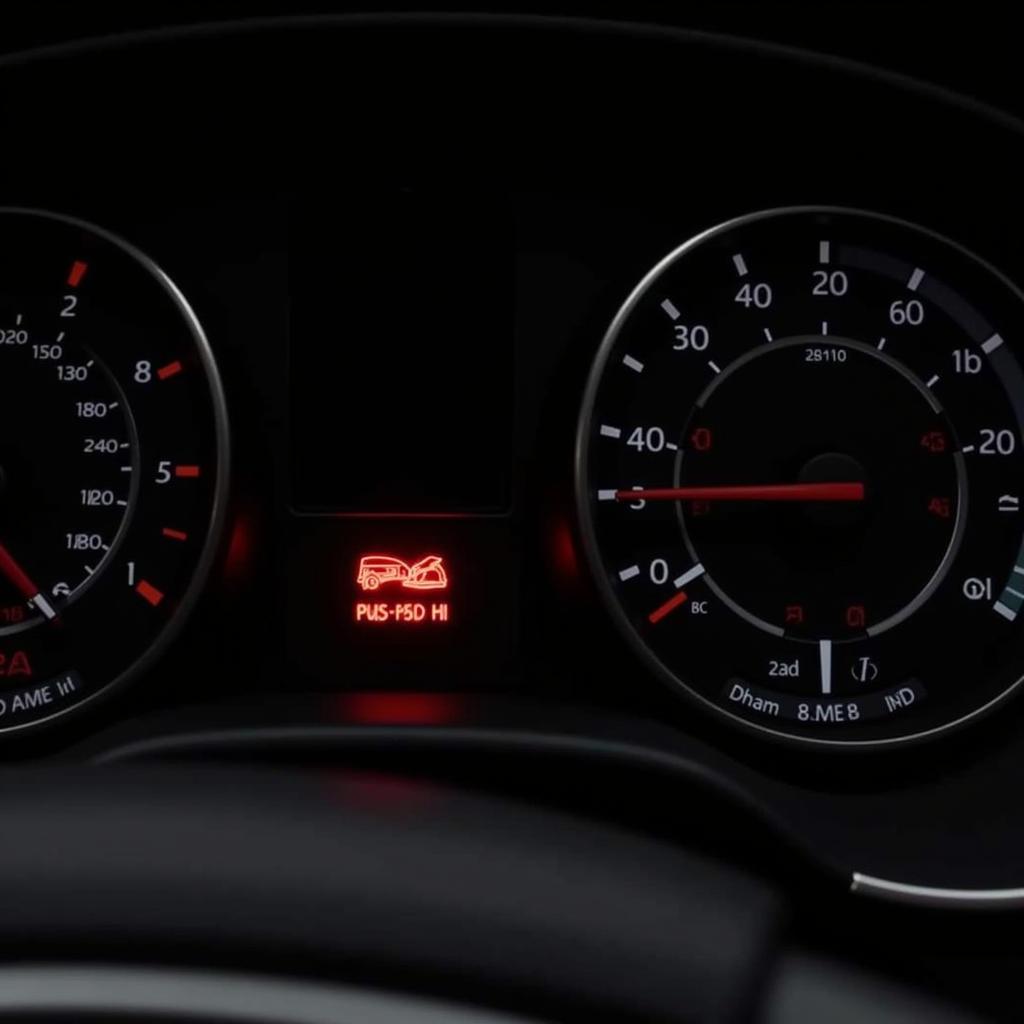The brake pad warning light on your Audi dashboard is a crucial safety feature that shouldn’t be ignored. It’s your car’s way of telling you it’s time to pay attention to your braking system. But what exactly triggers this warning light, and what steps should you take when it illuminates?
Understanding Your Audi’s Brake Pad Warning Light
Your Audi is equipped with a sophisticated sensor system designed to monitor the condition of your brake pads. When the sensor detects that the brake pad material has worn down to a certain level, it triggers the brake pad warning light on your dashboard. This light typically appears as a circle with dotted lines on either side, surrounding the word “BRAKE.”
 Audi Brake Pad Warning Light on Dashboard
Audi Brake Pad Warning Light on Dashboard
Common Causes of the Brake Pad Warning Light
While worn brake pads are the most common culprit, several other factors can also trigger the brake pad warning light in your Audi:
- Worn Brake Pad Sensors: The sensors themselves can wear out or become damaged, leading to a false warning.
- Low Brake Fluid: Brake fluid plays a vital role in transmitting force to the brake calipers. A low brake fluid level can trigger the warning light.
- Faulty ABS System: Problems with your Anti-lock Braking System (ABS) can also trigger the brake pad warning light.
What to Do When the Brake Pad Warning Light Comes On
If you see the brake pad warning light illuminated on your Audi dashboard, it’s essential to take the following steps:
- Don’t Panic: While the warning light indicates a potential issue with your brakes, it doesn’t necessarily mean you’re in immediate danger.
- Assess Your Brakes: Pay close attention to how your brakes feel. Do you hear any unusual noises like grinding or squealing when braking? Does the brake pedal feel spongy or lower to the floor than usual?
- Check Your Brake Fluid: Carefully open the brake fluid reservoir under your hood (refer to your owner’s manual for the location) and check the fluid level. If it’s low, you’ll need to top it off with the appropriate brake fluid.
- Schedule an Inspection: Even if your brake fluid level is normal, it’s crucial to schedule an inspection with a qualified mechanic, preferably one specializing in Audi vehicles.
 Mechanic Inspecting Audi Brakes
Mechanic Inspecting Audi Brakes
The Importance of Timely Brake Pad Replacement
Ignoring a brake pad warning light can lead to more severe and costly problems down the road:
- Reduced Braking Performance: Worn brake pads significantly reduce your car’s stopping power, increasing the risk of accidents.
- Damage to Rotors: Driving with worn brake pads can damage your brake rotors, leading to costly repairs.
- Complete Brake Failure: In extreme cases, ignoring the warning light can lead to complete brake failure, putting you and others on the road at significant risk.
Audi Brake Pad Warning Light Reset
After replacing your brake pads or addressing the underlying issue that triggered the warning light, you’ll need to reset the system. The reset procedure varies depending on your Audi model.
For specific instructions on resetting the brake pad warning light for Audi models like the Q7, A4, or A6, you can refer to our detailed guides:
- brake pad warning light audi q7
- audi a4 brake pad warning light reset
- brake pads warning light audi a6
Preventing Future Brake Pad Warning Lights
Here are a few tips to help prolong the life of your brake pads and prevent premature wear:
- Avoid Hard Braking: Anticipate stops and slow down gradually whenever possible.
- Lighten Your Load: Carrying excess weight in your vehicle puts additional strain on your brakes.
- Maintain Proper Tire Pressure: Underinflated tires can increase rolling resistance, leading to more frequent braking.
Conclusion
Addressing the brake pad warning light promptly is essential for your safety and the longevity of your Audi. Regular maintenance and timely repairs ensure optimal braking performance and peace of mind on the road. Don’t hesitate to contact a qualified mechanic for any concerns or questions regarding your Audi’s braking system.


